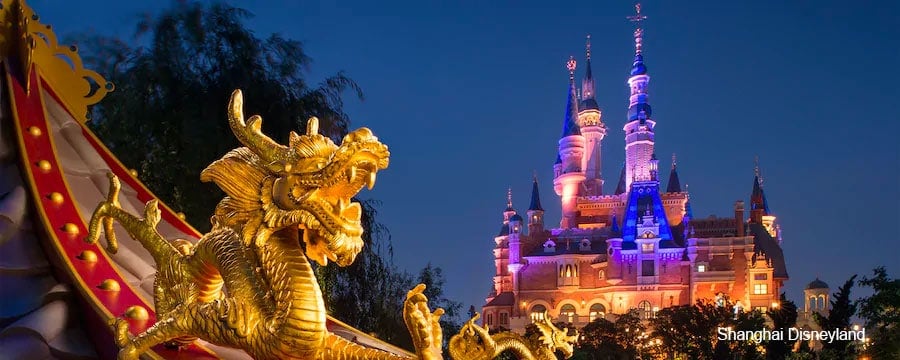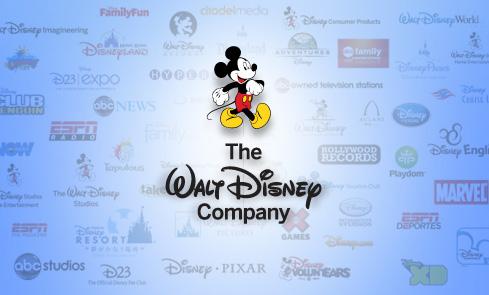
In just a few weeks, disgruntled shareholders will have another chance to force Disney to come clean on its dealings with Mainland China and the controlling Chinese Communist Party.
On Monday, April 3, 2023, The Walt Disney Company will host its Annual Meeting of the Shareholders, and during that time, investors on all levels will get a say in how the Mouse House moves forward. Three “Shareholder Proposals” will be presented and voted on with each share of stock counting as one vote. One of those proposals requests a “Report on Operations Related to China.”
Set to be brought forth by the National Legal and Policy Center, the proposal is initially presented in the Proxy Statment issued to Disney Shareholders as the following:
“Shareholders request that, beginning in 2023, The Walt Disney Company report annually to shareholders on the nature and extend to which corporate operations depend on, and are vulnerable to, Communist China, which is a serial human rights violator, a geopolitical threat, and an adversary to the United States. The report should exclude confidential business information but provide shareholders with a sense of the Company’s reliance on activities conducted within, and under control of, the Communist Chinese Government…
“…Given the controversial, if not dangerous, nature of doing business in and with China, shareholders have the right to know the extent to which The Walt Disney Company’s business operations depend on Communist China.”
The proposal further elaborates on the growing tensions between the United States and China, specifically regarding the control its adversarial government headed by Xi Jinping holds over many of the Chinese companies, as well as China’s continued participation in human trafficking, the Uyghur forced labor camps, the continually-growing threat it poses militarily. It also highlights China’s COVID-19-related actions, and its involvement in intellectual property theft, as well as corporate and political espionage.
Proudly spearheaded by returning CEO Bob Iger, The Walt Disney Company has grown incredibly invested in China since the opening of Hong Kong Disneyland in 2005 (which Iger admitted to seeing as a stepping stone into Mainland China), which peaked with the opening of Shanghai Disney Resort in 2016.
In Pre-Pandemic days, China also appeared to become incredibly important to Disney’s movie industry and the increasingly-crucial “global box office,” especially when tracking the overall success of the biggest movies like Avengers: Endgame. Shanghai Disneyland is the largest Disneyland Park in the world with the largest castle in the Disney family, but there were also some concessions made by Walt Disney Imagineers to make it “distinctly Chinese.” There is no “Main Street, U.S.A., and it is the only Disneyland without “it’s a small world.”
The government-controlled Shanghai Shendi Group owns the majority share of Shanghai Disneyland, but the property’s existence and continued development represent the Company’s intention to maintain a permanent presence in the country. And the cooperation has come under fire in recent years, especially regarding the live-action Mulan remake which was reportedly made with the help of the state agency directly responsible for the Uyghur persecution.
Related: Mainland China’s Disney Ambassadors Missing from D23
In 2022, a similar proposal to hold Disney accountable for its dealing with China was brought forward by shareholders, but that measure was voted down.
Just as they did in 2022, Disney’s Board of Directors advises its shareholders to vote against the audit, saying, “The requested report requiring the Company to disclose the nature and extent to which its corporate operations involve or depend on one particular country would not provide additional value to the Company’s shareholders.”
Highlighting the measures already taken by Disney’s emphasis on Human Rights Policy, its international labor standards, and the international framework already in place, they state, “The Board believes the additional report requested by the proposal is unnecessary base on the extensive information that is already provided to our stakeholders and the public, the governance framework including active Board oversight and our existing policies and procedures.”
On April 3, both sides will be able to state their case, and the matter will come down to a vote.
In the days of Chapek-Era, it appeared that reliance on China–considered the second-largest box office in the world–was coming to an end. But as Iger reassumes control, it is unclear just how much emphasis will return on the Middle Kingdom.







